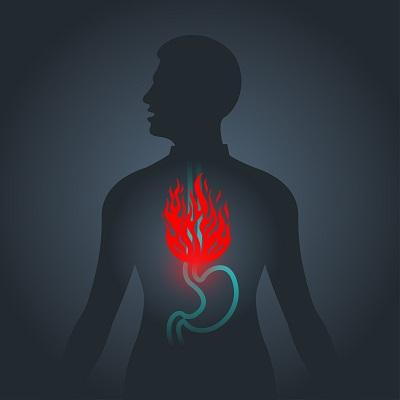 Do you find that most mealtimes end up being ruined by gnawing, nagging heartburn? While most people will experience heartburn at some point during their lifetime, if you are someone who suffers from this problem several times a week then you may just have a digestive disorder known as gastroesophageal reflux disease (GERD).
Do you find that most mealtimes end up being ruined by gnawing, nagging heartburn? While most people will experience heartburn at some point during their lifetime, if you are someone who suffers from this problem several times a week then you may just have a digestive disorder known as gastroesophageal reflux disease (GERD).
What is GERD?
Whenever you eat food, it travels from the esophagus to the stomach. Once food enters the stomach, the stomach produces acid to break up the food. Of course, in healthy individuals the food travels from the stomach to the intestines; however, if you have GERD then the acid and food contents actually flow back up to the esophagus from the stomach, irritating the lining of the throat and causing a nasty case of heartburn.
What are the symptoms?
Heartburn is a classic symptom of GERD. Heartburn is a burning in the chest that also affects the lining of the throat. Heartburn sometimes produces an acidic or bitter taste in the mouth. Symptoms may get worse if you eat a big meal, consume something spicy or lie down immediately after eating.
How is GERD diagnosed?
In some situations a gastroenterologist may be able to determine that you have GERD based on the symptoms you describe and through a simple physical exam; however, sometimes a diagnostic test is required in order to determine whether your symptoms are truly caused by GERD or something else. An upper endoscopy is one common diagnostic procedure performed to check for signs of inflammation or damage to the lining of the esophagus, which are indicative of GERD.
What are my treatment options?
Your treatment plan will most likely consist of lifestyle modifications and medications.
Lifestyle modifications
If you are overweight or obese you may be at a higher risk for developing GERD. It’s important to lose that excess weight and to maintain a healthy weight to reduce your symptoms. Quit smoking if you are currently a smoker. Make sure to eat slowly and eat smaller meals. Don’t lie down immediately after eating and eat about three hours before going to bed.
Also, there are certain foods that can trigger heartburn symptoms including chocolate, caffeine, alcohol, tomato sauce, garlic, or fatty and spicy foods. Limit or avoid any of these foods if they are known to cause you heartburn.
Medication
Those with milder symptoms may be able to use an over-the-counter antacid or medication to manage their symptoms; however, if symptoms are moderate-to-severe, or if you have damage to the lining of the esophagus, then you’ll need a stronger medication to reduce or even prevent the production of stomach acid until the damage has healed.
If you deal with heartburn on a regular basis or can’t seem to get heartburn under control it’s important that you turn to a GI doctor who can help you find the proper treatment option to prevent digestive complications and to make mealtimes more enjoyable again.
